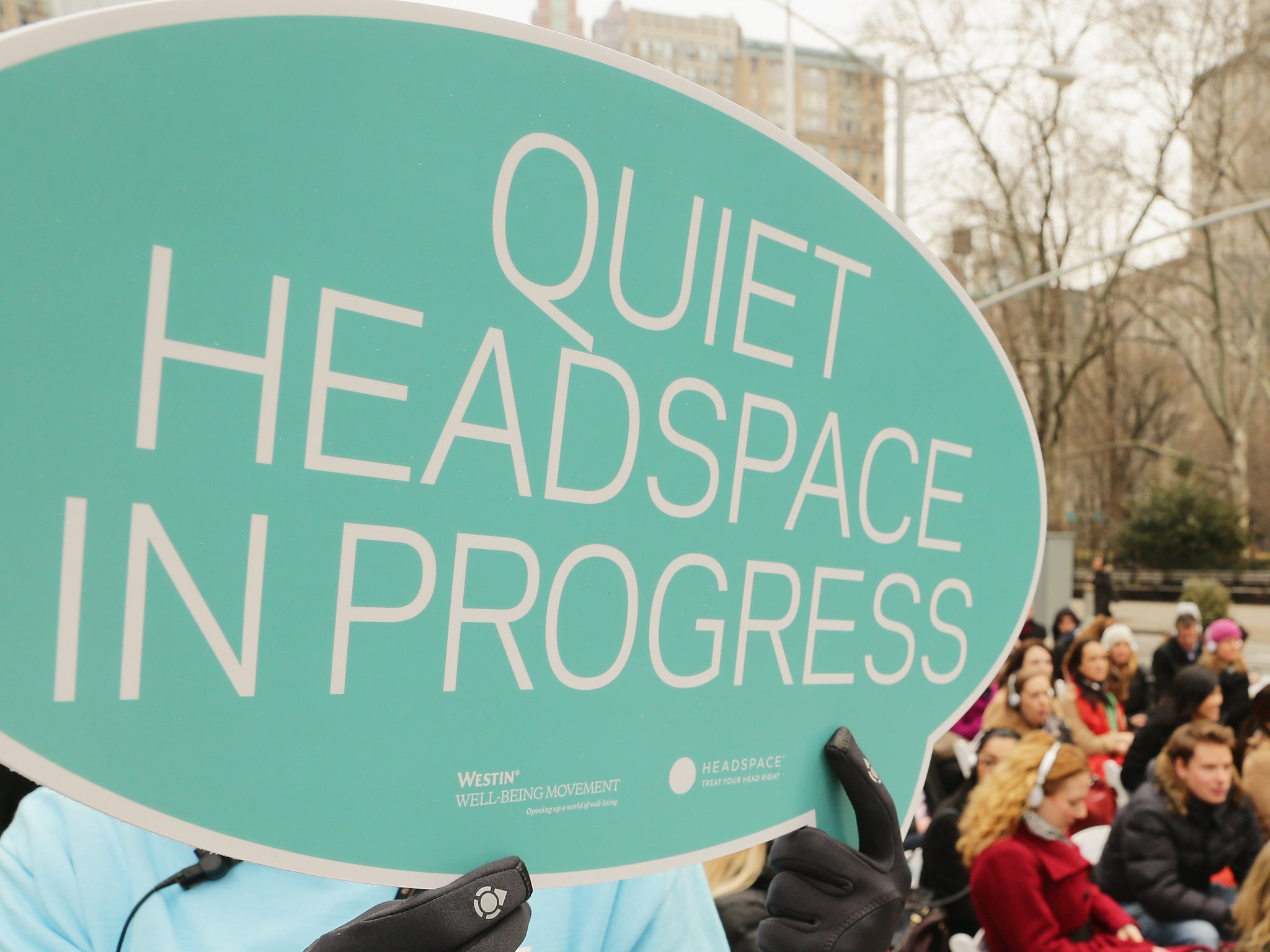Burnt out and depressed, I lost my mind seven years ago. Until mindfulness helped me recover it
I've studied the mind at both Berkeley and Oxford, and used mindfulness for my own benefit — I can't recommend it highly enough

I didn’t study mindfulness because I had so much free time that I needed to fill a few hours each day staring into space and wearing a white nappy.
I’ve always had an obsession with the mind, and studied it at Berkeley University centuries before I hit this "green and pleasant land". Reading the latest research, I found that mindfulness and cognitive therapy, above all other therapies, dramatically alters the physiology of the brain for the better. It helps deal with stress, burn out, depression, lowering rates of heart disease, type 2 diabetes, dementia, obesity…(you get where I’m going).
I thought that it was worth a closer look. I got myself into Oxford to get my Masters in mindfulness-based cognitive therapy. Call me crazy, but I thought that if Oxford offered a course on the neuroscience of mindfulness, it might be legitimate. Otherwise they’d also be offering courses in "Angel Sightings" and classes in "How To Heal Your Inner Elf".
So many of us complain about the state of the world, “We’re all going to die, it’s a disaster.” You can tweet, blog, bitch and bore people senseless at dinner parties on how to improve it, but really in my opinion, what has to change first, is our thinking.
The conflict isn’t so much out there, it’s in us. We live in a state of conflict; our minds are blasted with up to the minute global atrocities, busy beyond the speed of light, and magazines and newspapers constantly tell us that we’re not successful/famous/thin enough (choose your area of dissatisfaction).
Our thoughts goading us on with “I should do, I didn't do, my thighs are too fat.” To really change, we have to take the fat bull by the horns and learn about what’s going on in our minds. You can’t do or change things by those self-damning thoughts; they’ll only make you eat, drink, smoke, snort more.
About seven years ago, I lost my mind. I didn’t misplace it, I had just jammed the motors on for so long, that it burnt out like a car engine. I ran out of petrol, and kept revving until I found that my old self had been evacuated and replaced by a corpse. Lead ran through my veins, I was in a coma but awake. As if the sun was suddenly eclipsed by something very dark. It was depression. I’m not alone, in fact it’s a really big club - one in four people have it.
This is another reason I thought I’d check out mindfulness. It has the best results in preventing relapse after having three or more episodes of depression, and I was on about episode 36. It doesn’t prevent a disease but, if you can calm your mind enough, you can see it coming in the early stages, before it takes you hostage.
Practicing mindfulness also prevents that syndrome we all get into, where we stress about stress. We only inflict more damage on ourselves when we beat ourselves up over the way we feel. Someone said, “Pain is pain but suffering is optional.” Mindfulness is about taking over the wheel and being the driver rather than the driven.
About the practice of mindfulness
There are very few of us who enjoy going to the gym to do endless repetitions of sit-ups. This is a waste of airtime if anything is. You want health? Take a walk, honestly, you don’t need a six pack to live longer.
It’s the same deal with mindfulness, you can’t just do it once for a few minutes. It’s the repetition that builds up that mental muscle. Understanding a little about the anatomy of the brain is what made me sit down and do it.
Here’s what’s going on: When you’re knee deep in stress and those thoughts are berating you, it’s because a part of our brain called the amygdala is activated. It blasts out those fight or flight hormones to get you ready to rumble or run.
With mindfulness you practice taking your focus to one of your senses; taste, sound, touch, whatever. And as soon as you send your attention to a physical sensation, another region of the brain is activated: the insula.
As soon as you focus on that sense, the amygdala automatically calms down, the stress hormones shut off, your heart beat becomes slower and steadier, your blood pressure lowers. You’ve cooled your engine.
Basically, you can’t be thinking and sensing at the same time, it’s one or the other. Just like getting in a car and trying to be in two gears, it just won’t drive. It’s the repetition of going from thoughts to a single sense that actually strengthens and thickens the insula.
You’re not just sitting there with your eyes shut - you’re actually doing the hardest exercise of all. Each time you go from thinking to sensing, you’re making that insula buff (turning it into a mental six-pack, you might say).
Then when those stress storms hit you and you’re drowning in critical thoughts, you have a solid anchor from where you can hold on in the face of the raging mental storm. And that's mindfulness.
Ruby Wax is bringing her one-woman comedy show, Sane New World, to London’s St James Theatre, 2nd – 14th March 2015. Tickets are £20-30 and available here.
Join our commenting forum
Join thought-provoking conversations, follow other Independent readers and see their replies
Comments